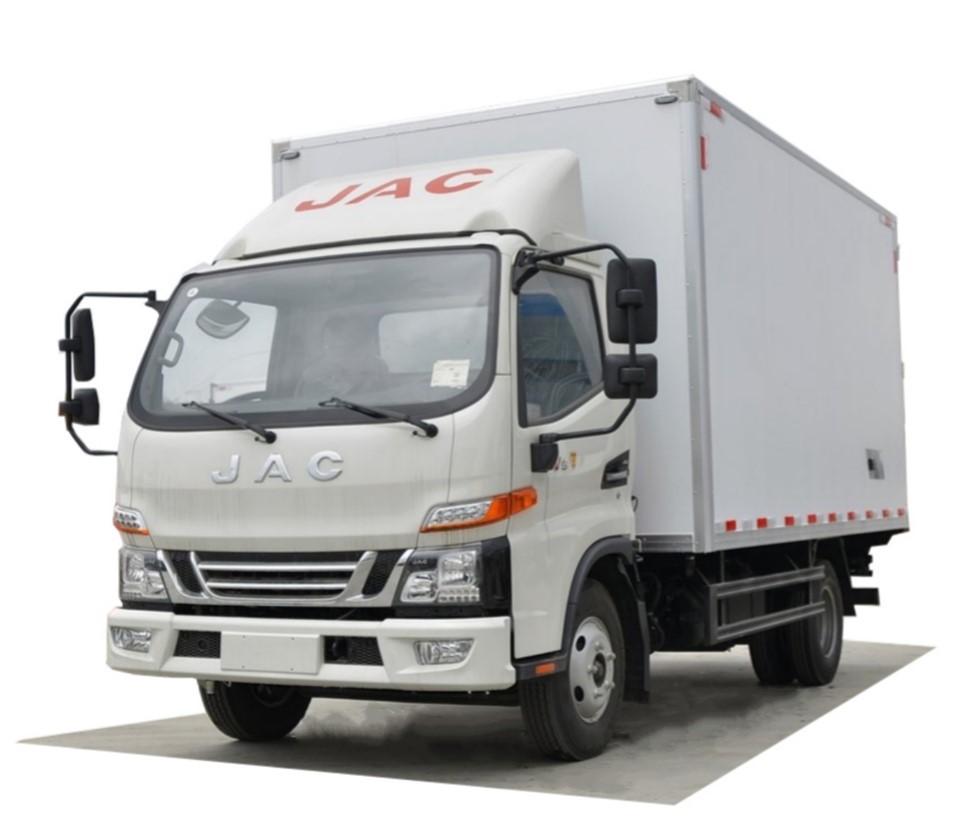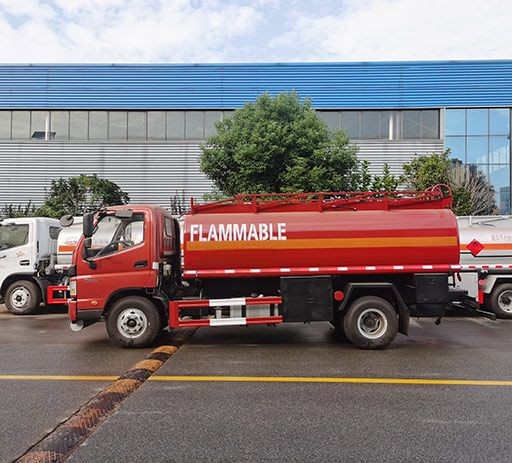Everything You Need to Know About Mini Gas Trucks

Mini gas trucks have surged in popularity due to their versatility, fuel efficiency, and practicality for various use cases. Whether for personal use or business applications, these compact vehicles are redefining the trucking landscape. In this article, we will explore the many facets of mini gas trucks, including their benefits, features, popular models, and practical tips for purchasing and maintaining one. Read on to discover how a mini gas truck might be the perfect addition to your life or business.
Understanding Mini Gas Trucks
A mini gas truck is a compact vehicle that runs on gasoline and is designed for a range of applications, from hauling cargo to urban commuting. They typically feature smaller dimensions compared to traditional pickup trucks, making them ideal for city driving and tight parking spots.
Key Features of Mini Gas Trucks
- Size: Mini gas trucks are smaller than regular pickups, allowing for easier maneuverability in crowded areas.
- Fuel Efficiency: These trucks generally provide better gas mileage than their larger counterparts.
- Versatility: They can be used for a variety of purposes, such as deliveries, camping, or everyday commuting.
- Cost-Effective: Lower purchase price and running costs compared to full-sized trucks.
The Benefits of Owning a Mini Gas Truck
1. Enhanced Fuel Economy
One of the biggest advantages of mini gas trucks is their fuel efficiency. The smaller engine size typically found in these vehicles allows for better gas mileage, saving owners money over time, especially for those who frequently drive long distances.
2. Easy Maneuverability
City living can be a challenge with larger vehicles. Mini gas trucks are designed to navigate narrow streets and find parking in crowded areas with greater ease. Their compact size provides drivers with confidence when dealing with urban traffic conditions.
3. Lower Maintenance Costs
Due to their smaller engines and simpler mechanisms, mini gas trucks usually incur lower maintenance costs. Routine service such as oil changes, tire rotations, and brake inspections are generally more affordable compared to larger trucks.

4. Multi-Functional Use

These trucks can be adapted for numerous applications. From carrying camping gear to serving as delivery vehicles for small businesses, mini gas trucks are incredibly versatile. This quality appeals to both individual consumers and small business owners.
Popular Mini Gas Truck Models
1. Chevrolet Colorado
The Chevrolet Colorado is a popular choice for those looking for a mini gas truck. It offers a robust engine, generous cargo space, and a comfortable cabin. The Colorado is available in various trims, making it customizable for personal or professional needs.
2. Ford Ranger
The Ford Ranger delivers strength and efficiency. Known for its off-road capabilities, it also provides ample towing capacity for those who need to haul equipment or trailers.
3. Toyota Tacoma
The Toyota Tacoma is renowned for its reliability and longevity. It comes equipped with advanced safety features and optional four-wheel drive for off-road adventures.
4. Nissan Frontier
The Nissan Frontier is a budget-friendly option that offers solid performance. With a spacious bed and comfortable interior, it is a great choice for daily driving and small-scale hauling.
Buying Tips for Mini Gas Trucks
1. Set a Budget
Before diving into the buying process, it’s essential to determine your budget. Consider not only the purchase price but also insurance, maintenance, and fuel costs.
2. Research and Compare Models
Take the time to research different models and compare their specifications, features, and reviews. Websites like Edmunds and Kelley Blue Book can provide insights into reliability and customer satisfaction.
3. Test Drive
Nothing beats a test drive when it comes to assessing whether a mini gas truck feels right for you. Pay attention to comfort, visibility, and ease of handling.
4. Look for Incentives and Rebates
Manufacturers and dealerships often offer seasonal promotions, incentives, and rebates. These can help lower the overall purchase cost, making it a good time to buy.
Maintenance Tips for Your Mini Gas Truck
1. Regular Oil Changes
Keeping your truck’s oil clean is vital for longevity. Schedule oil changes according to the manufacturer’s recommendations to ensure optimal engine performance.
2. Tire Rotation and Maintenance
To prolong the life of your tires and ensure safety, have them rotated regularly. Check tire pressure monthly and look for signs of wear or damage.
3. Brake Inspections
Regular brake inspections are crucial for safety. Pay attention to any changes in braking performance, such as squeaking or longer stopping distances.
4. Keep It Clean

Maintaining the cleanliness of both the interior and exterior can prevent rusting and degradation. Regular washes and detailing can keep your mini gas truck looking and feeling new.
Mini Gas Truck vs. Full-Size Truck: Which to Choose?
Size and Maneuverability
Mini gas trucks are easier to maneuver and park in tight spaces compared to full-size trucks, making them ideal for city driving.
Cost Considerations
Mini gas trucks generally have a lower purchase price and can be more economical in terms of fuel and maintenance, while full-size trucks may offer more towing capacity and cargo space.
Use Cases
If you need something primarily for urban driving and small hauls, a mini gas truck will serve you well. For heavy-duty work requiring larger payload capacities, a full-size truck may be necessary.
Environmental Impact of Mini Gas Trucks
With growing concerns about automotive emissions, mini gas trucks present an opportunity for consumers to choose a more fuel-efficient option. While they still utilize fossil fuels, their smaller engines lead to better gas mileage and reduced emissions compared to larger vehicles. Additionally, some manufacturers are developing hybrid or electric versions, which may further decrease their environmental footprint.
Future Trends in the Mini Gas Truck Market
1. Increased Fuel Efficiency
As fuel economy standards become stricter, manufacturers are investing in technology that improves the fuel efficiency of mini gas trucks. Newer models are expected to incorporate lighter materials and advanced aerodynamics.
2. Hybrid and Electric Options
With a growing emphasis on sustainability, the market is likely to see more hybrid and electric mini trucks. These options promise reduced emissions and lower operating costs.
3. Advanced Technology Integration
Expect greater integration of technology in mini gas trucks. Features such as advanced driver-assistance systems, infotainment options, and connectivity will become standard in newer models.
Frequently Asked Questions (FAQs)
1. What is the average cost of a mini gas truck?
The average cost can range from $25,000 to $40,000, depending on the make, model, and selected features.
2. How fuel-efficient are mini gas trucks?
Fuel efficiency varies by model, but many mini gas trucks achieve between 20 to 30 miles per gallon, or even higher in some cases.
3. Can mini gas trucks be used for towing?
Yes, many mini gas trucks come with towing capabilities, but it’s essential to check the specific towing capacity of the model you are interested in.
4. Are mini gas trucks suitable for off-roading?
Some mini gas trucks are designed with off-roading capabilities, but it’s important to choose a model specifically equipped for such activities if that is your intention.
5. How long do mini gas trucks typically last?
With proper maintenance, a mini gas truck can last 150,000 to 200,000 miles or more, depending on the make and driving conditions.
6. Are electric mini trucks available on the market?
Yes, several manufacturers are beginning to offer electric models of mini trucks, which provide even lower emissions and fuel costs.
